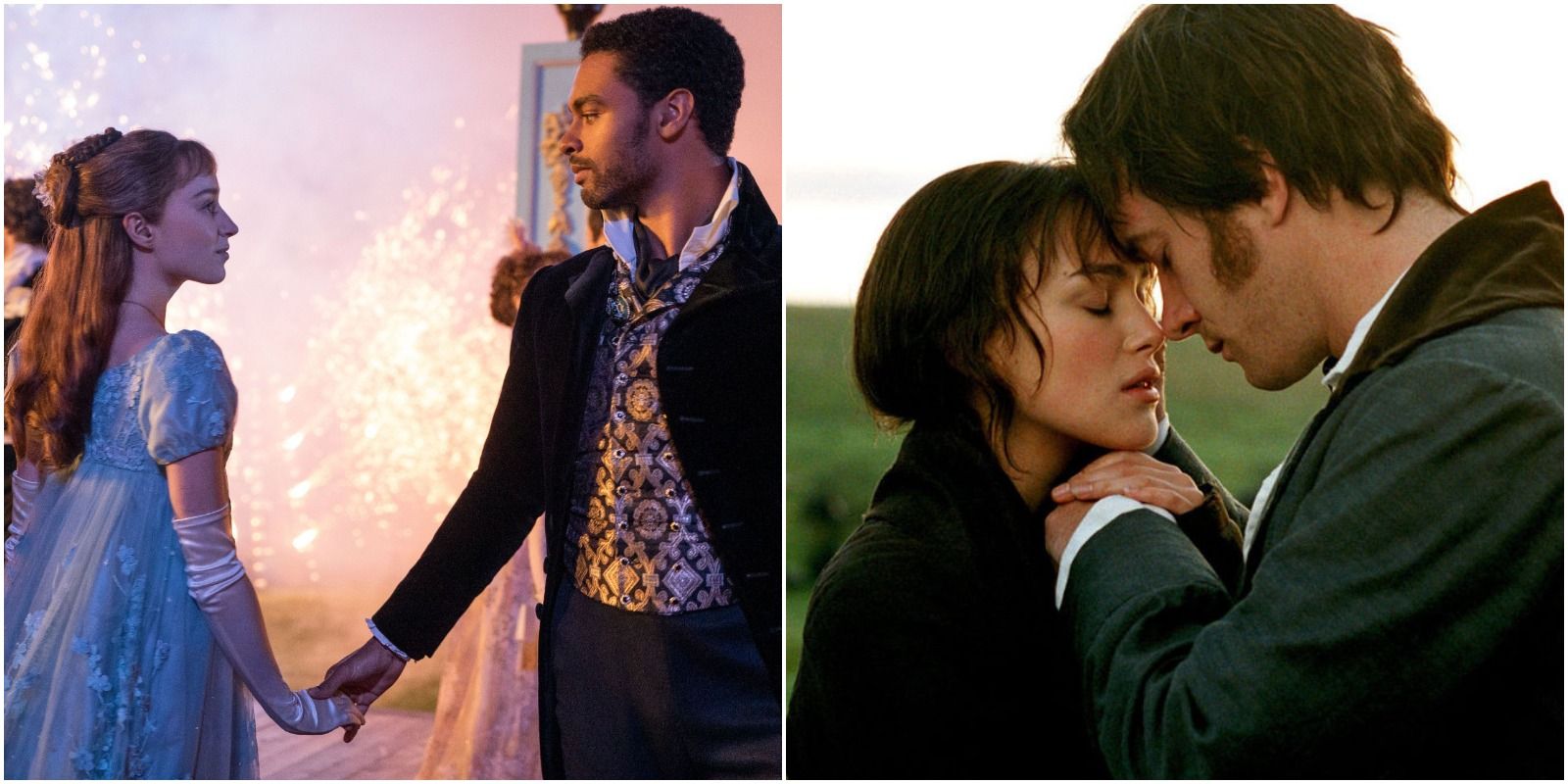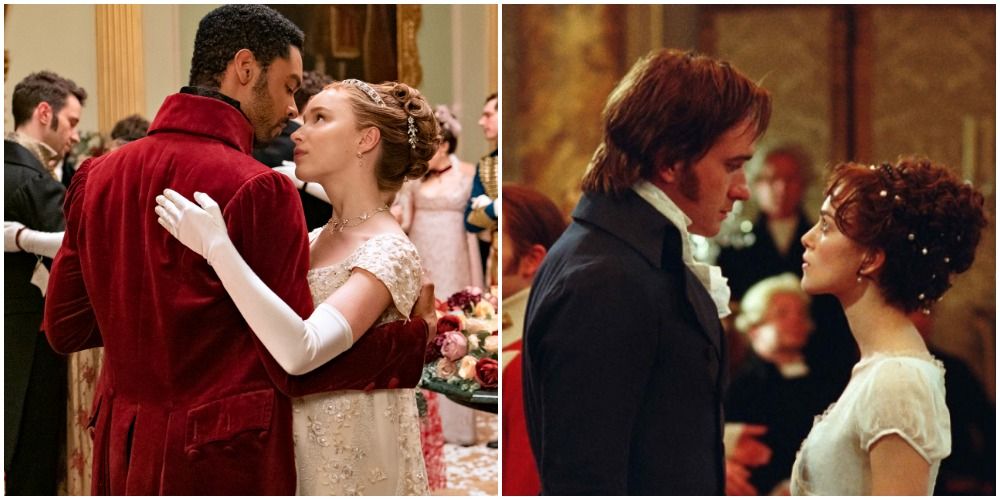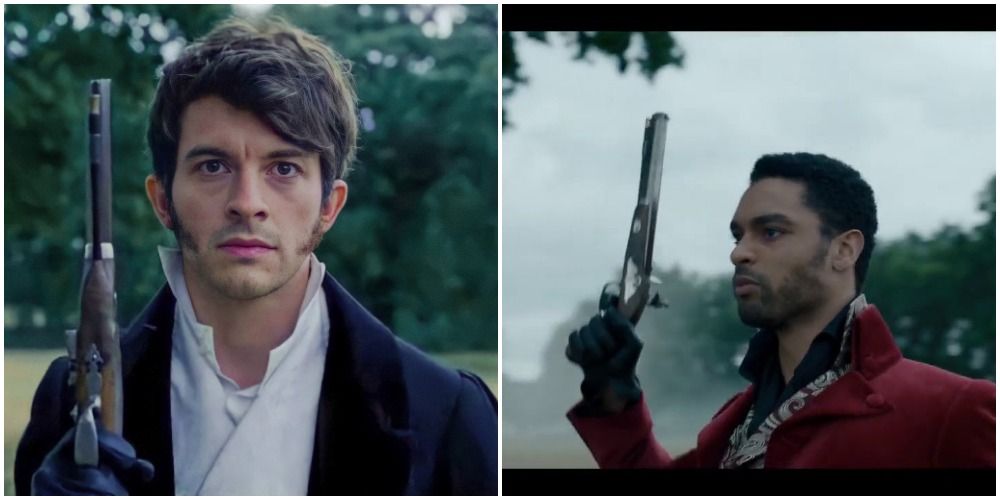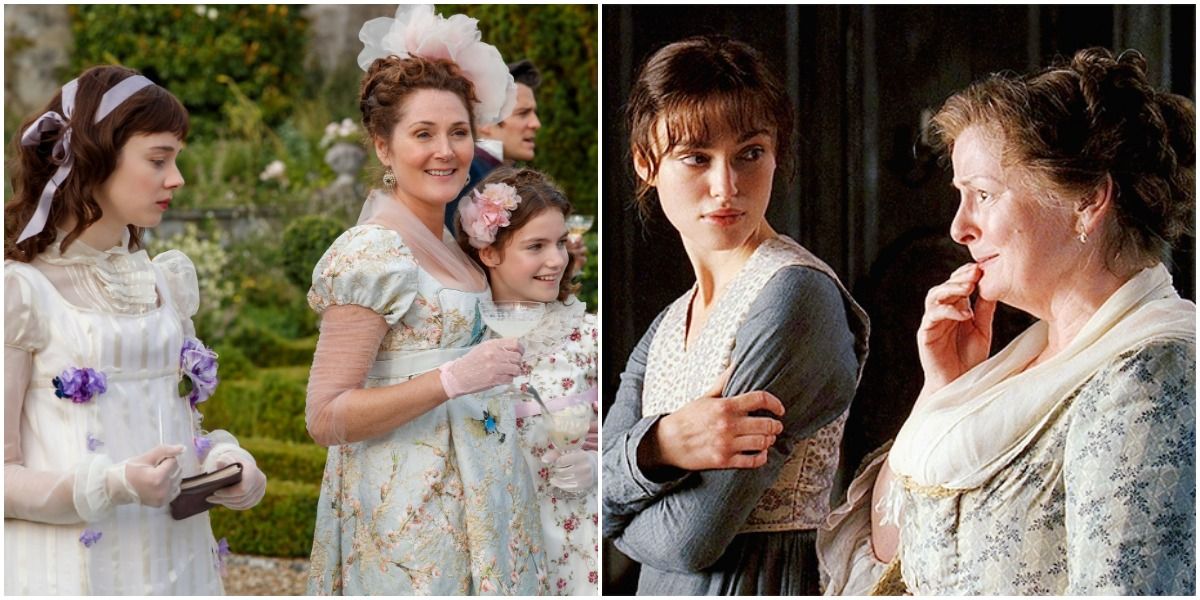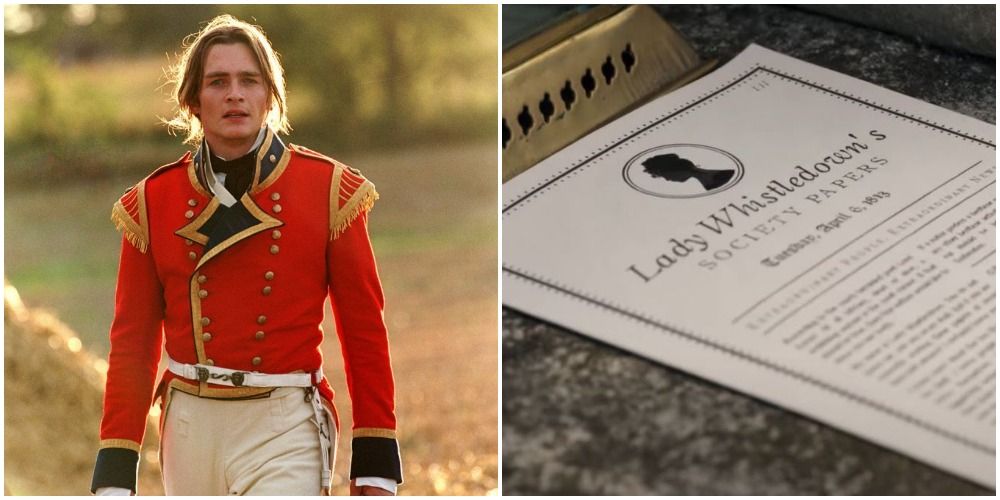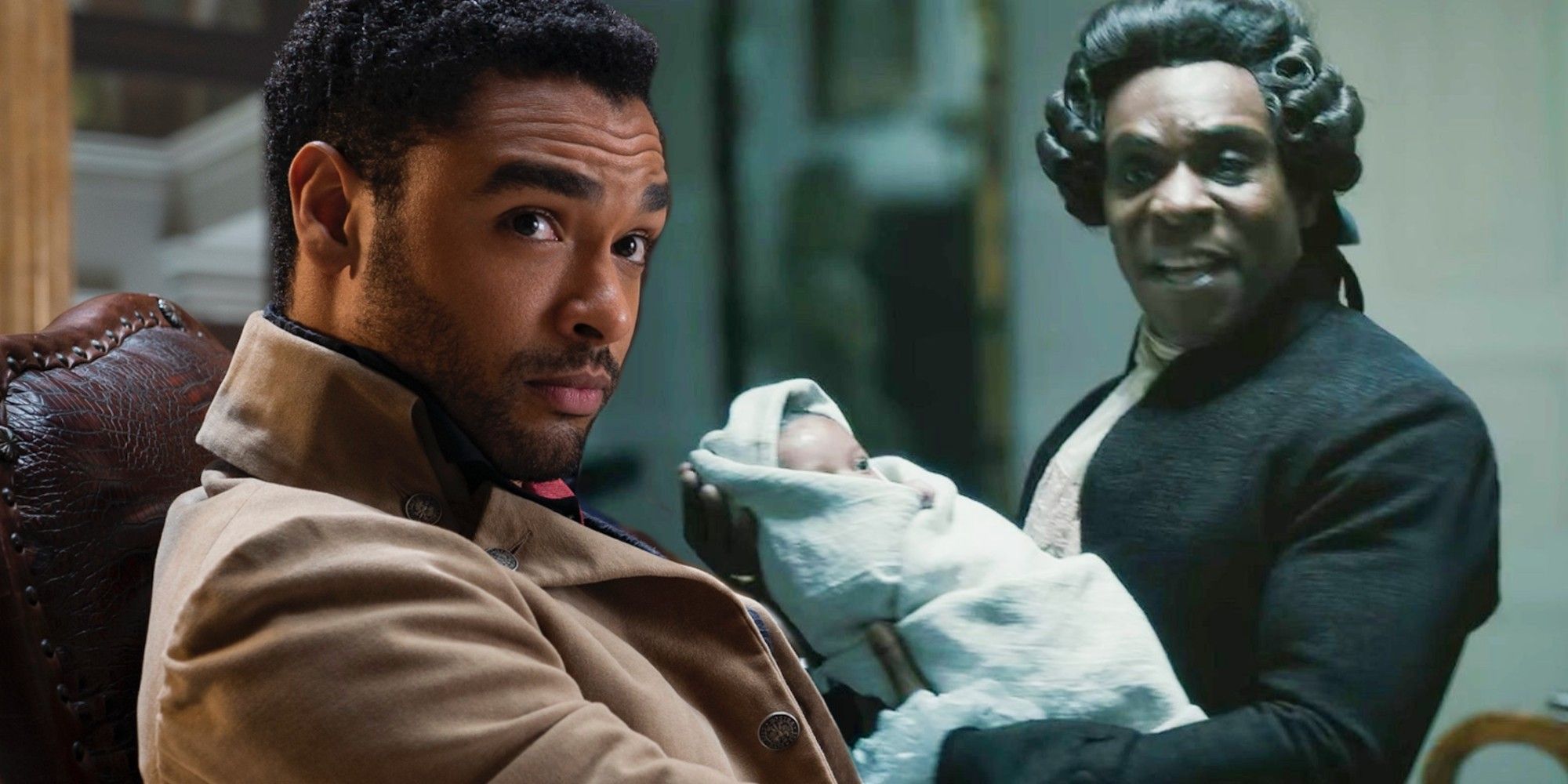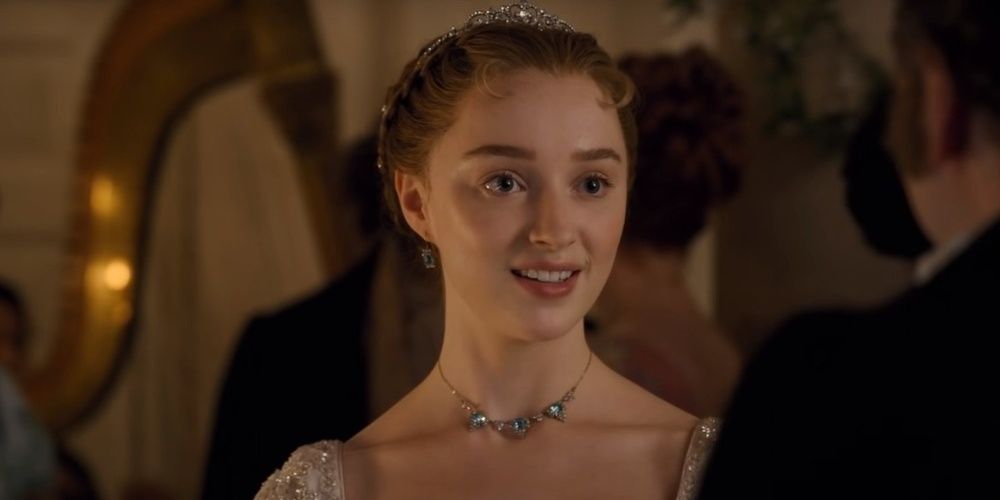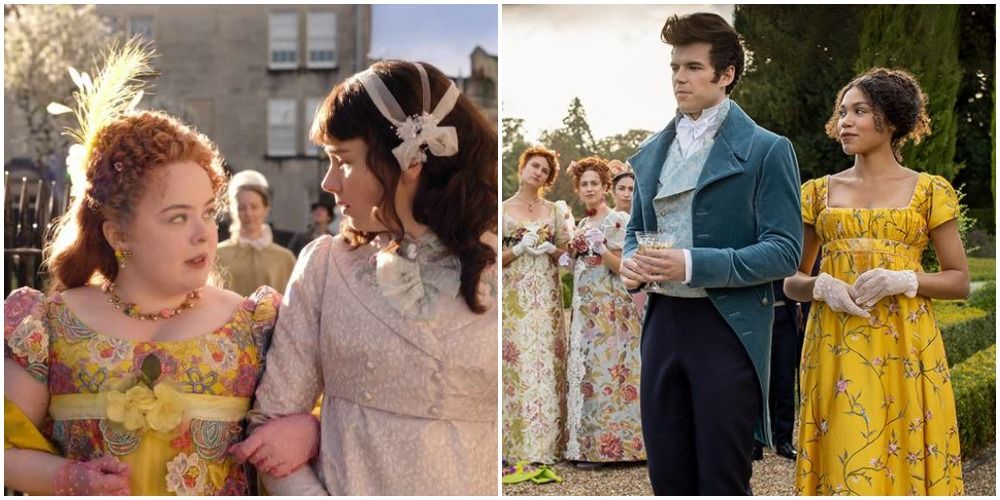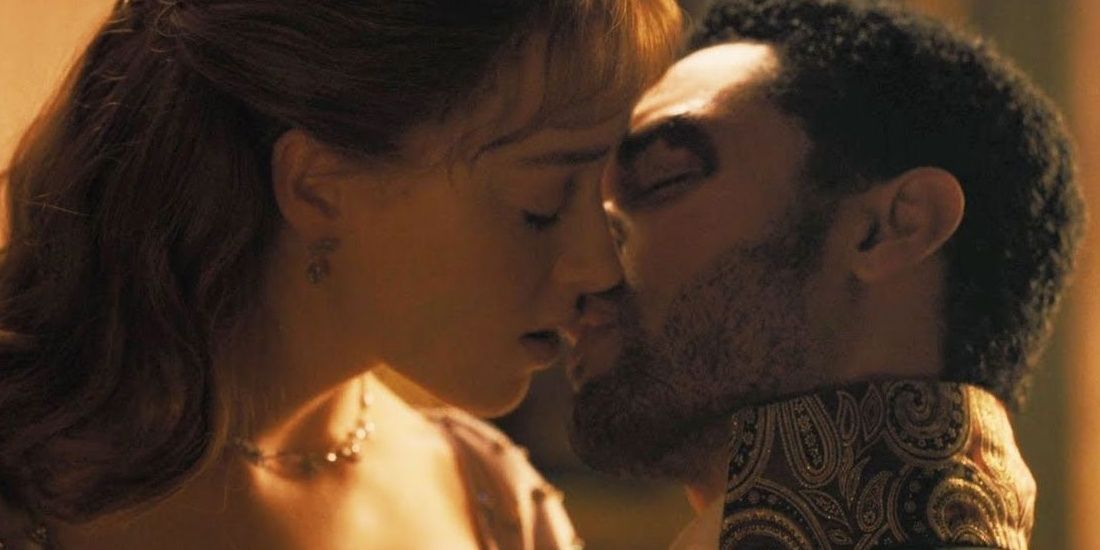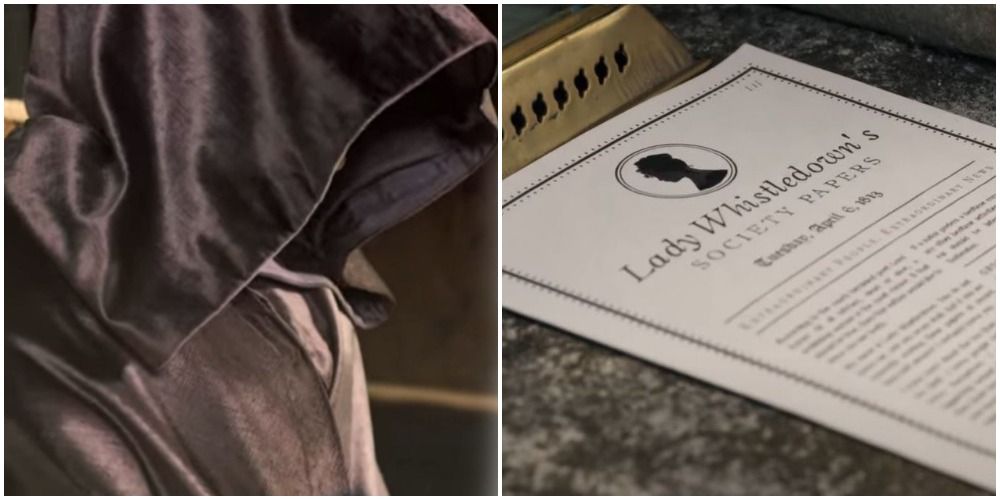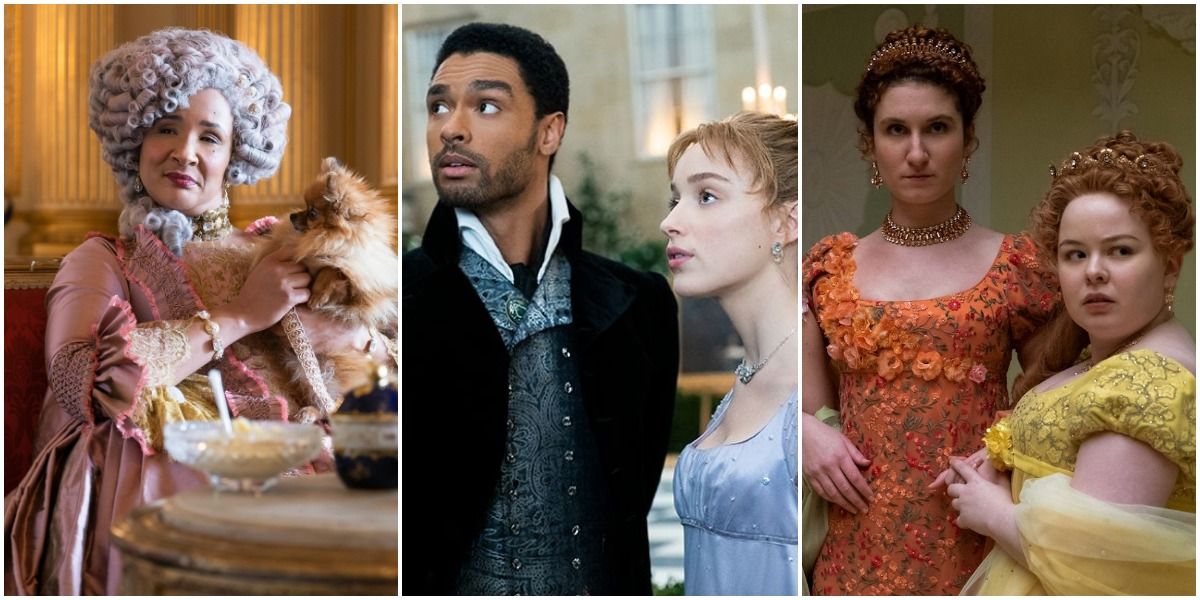It is a truth universally acknowledged that period dramas are a timeless treasure that fans can't help but love. Netflix's Bridgerton, from the great minds that brought Grey's Anatomy and Scandal to life, is no exception. Since its release in December 2020, Bridgerton has streamed in over 63 million homes and gained quite a fandom too. There's a lot to love about the drama, from the diverse cast to the instrumental covers of beloved songs by Taylor Swift and Billie Elish.
While Bridgerton has many unique traits that set it apart from other period dramas, it uses some cliches of the genre in the best ways. In fact, Bridgerton combines the historical fame of Pride and Prejudice with the scandalousness of Gossip Girl, while throwing in some raunchy scenes. In some ways, this made the show better than similar predecessors, but it is not without its faults.
Did It Better: The Couple's Chemistry
Both Bridgerton and Pride and Prejudice have a beautiful love story, beginning with a couple at odds with each other before falling madly in love. While long-time fans of regency dramas have labeled Jane Austen's Mr. Darcy and Elizabeth Bennet (Pride and Prejudice) the real OTP, Julia Quinn's Simon Basset and Daphne Bridgerton (Bridgerton), may knock them clean off that pedestal.
For one thing, Simon and Daphne's relationship developed from strangers to a scintillating friendship, and eventually a love that burned with passion. Darcy was initially horrible to Elizabeth, insulting her looks and her family's financial standing, even at the time he was proposing his love for her.
Missed The Mark: The Stakes Didn't Feel High Enough
Society's opinion about a lady was important to the young ladies of Bridgerton. Lady Whistledown's society papers made things worse because just one scandal and a lady (and her family) were ruined. Even an unmarried debutante kissing a man was something scandalous.
The only time that Bridgerton came close to adding a sense of urgency was when Simon and Daphne had their stolen kiss, which was witnessed by her eldest brother, Anthony, who immediately demanded that the two marry. Simon refused and Anthony challenged him to a duel. The duel involved guns and was interrupted when it had barely begun, leaving the audience with barely enough time to grasp the gravity of the situation.
Did It Better: Healthier Family Dynamic
Daphne was the fourth child in a family of eight, while Elizabeth was the second in a family of five. Elizabeth's mother, Mrs. Bennet, clearly favored her eldest daughter Jane, and never refrained from putting down the others, even making derogatory remarks on their looks as compared to Jane.
Violet Bridgerton, on the other hand, loved all her children dearly and never showed any blatant favoritism to any of them. Even though like Mrs. Bennet, Violet wanted her daughter to be married off well, she wanted Daphne to find love in her match, rather than chase after rank and money, as Mrs. Bennet so shamelessly did.
Missed The Mark: The Lack Of A Strong Villain
While the romance genre isn't really known for or expected to have a villain, a formidable antagonist certainly makes the story a lot more interesting. Pride and Prejudice's Lieutenant Wickham is a good example of this. He started off as a good guy, gaining the viewers' sympathy until his treachery was revealed and he eloped with one of the young Bennet ladies, Lydia.
In Bridgerton, the closest thing to a villain or antagonist is Lady Whistledown, who could ruin a reputation with a few, well-thought-out words.
Did It Better: Relatable Storylines & Lessons
For a lot of people, a story bears more meaning when there are relatable lessons in it. With regency dramas, this is a little more difficult to achieve because of the vast differences between the world then and now. Bridgerton, however, handles this beautifully.
While most young women and men can't relate to arranged marriages and the societal pressure to marry for money, some themes in Bridgerton felt more familiar. The father-son issues Simon had with his father brought something that fans of this era are familiar with. Even Eloise's wish to focus on nurturing her mind rather than give in to societal pressure to marry once she came of age is something that most women of her age nowadays aspire to do.
Missed The Mark: Daphne's Character
From the very beginning, Daphne was presented as an intelligent and well-accomplished lady. On several occasions, Simon commends her on her knowledge of certain things and she points out that having three older brothers contributed to this. Daphne even commented on her brother's and Simon's rakish reputation, which is why it's surprising that she seemed oblivious to the fact that sex is not just for procreation.
Although the show managed to make Daphne relatable by showing her struggle to live up to society's expectations of the perfect woman, some of her actions condemned her in the eyes of many viewers. Her manipulation of Simon and lack of remorse when she'd done something wrong were barely addressed by the end of the season and she was never held accountable for them, which sends a terrible message to the audience.
Did It Better: Enthralling Secondary Characters
Although Brigderton, like Pride and Prejudice, had no shortage of secondary characters, the former manages to do something the latter couldn't: to give them more depth. In Pride and Prejudice, secondary characters, like Kitty and Lydia, weren't shown to be anything more than young, impressionable girls obsessed with the idea of marriage like their mother.
Bridgerton, however, had three-dimensional characters, each with unique traits and a strong sense of individuality. A good example is Eloise Bridgerton, who was strongly against the issue of marriage and even encouraged her brother, Benedict, to pursue his passion for art.
Missed The Mark: That Controversial Scene
When Daphne realizes that Simon withheld the fact that he can have children but chooses not to, rather than talk to him about it first, she went to bed with him and made sure that he wouldn't be able to employ his usual technique, so to speak. Fans and critics have expressed their concern over this scene, as it has been construed as assault.
While Bridgerton toned down this scene from what it was in the books upon which the series is based, some of the toxicity of the situation remained. Given that they had the presence of mind to change it to better suit woke-culture, the least the showrunners could have done was show Daphne's remorse at her actions and let her and Simon have an earnest conversation about it. Even though some have defended Daphne because she didn't know much about sex, this was a missed opportunity to have her (and the audience) learn about it, rather than ignore the issue completely.
Did It Better: Intriguing Plot Twists
Although the romance genre often follows the standard storyline of a couple meeting, falling in love, facing a conflict, then getting back together and living happily ever after, Bridgerton did not hesitate to throw a wrench (or three) at its almost perfect love story.
One of the best plot twists was the identity of Lady Whistledown, which was finally revealed in the finale, "After The Rain." Throughout the season, viewers tried to guess who she might be. Suspects ranged from Lady Danbury, who was never short of witty, biting remarks, to the Modiste, who undoubtedly had a lot to hide.
Missed The Mark: It Was Modernized - Until It Wasn't
Bridgerton is hardly historically accurate, and that's not such a bad thing, but the inconsistency of these historical inconsistencies is another thing altogether. The color-blind cast was one historical inaccuracy that fans appreciated because of the importance of representation. Even the little things, like the string quartet covers of modern-day music, were good indications that the show was prepared to switch things up from book events in order to keep up with the times and stay relevant to the modern world.
However, some serious things that would have been better off changed, weren't. Aside from Daphne's assault, addressing the importance of communication and honesty between a couple is one thing that the modern version of the story could have done better.

